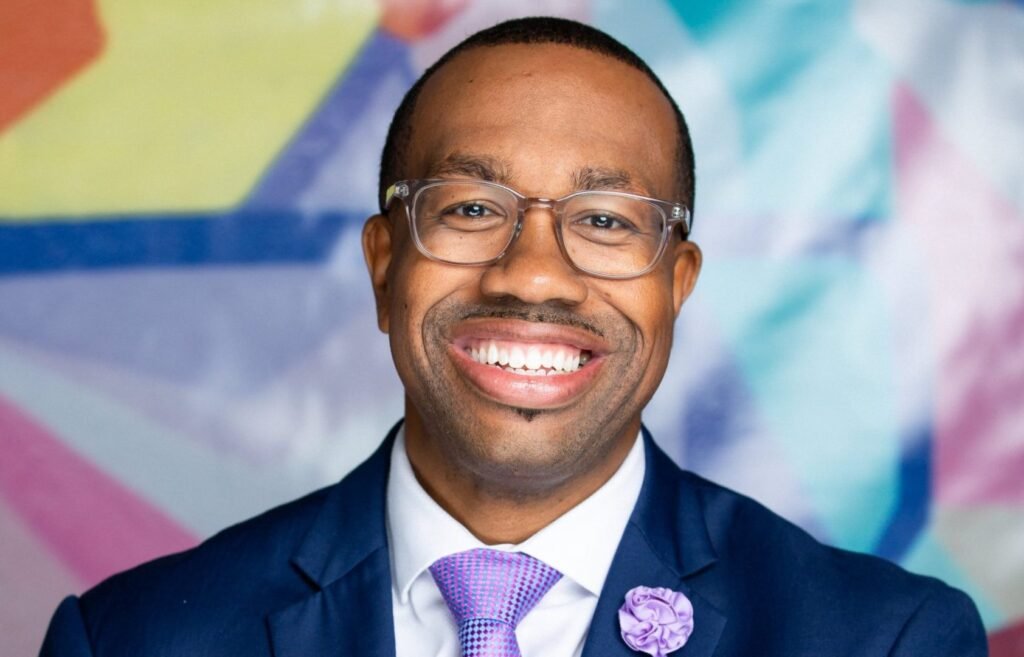In a candid conversation with Kevin Fuchs, renowned entrepreneur and former White House staffer Isaac McCoy delves into the multifaceted aspects of his work, highlighting his commitment to community service and financial independence. McCoy’s approach to entrepreneurship goes beyond just business success; it is deeply rooted in his upbringing and faith, which instilled in him a deep sense of obligation to serve others.
“I’m a person who uses my God-given talents to serve people and my community,” McCoy said, summarizing his philosophy. This spirit of servant-leadership is evident in his business ventures, especially through his company I2J, which operates as a community development organization and private equity firm. Owning businesses in a variety of sectors gives McCoy the flexibility to truly support people of color, LGBTQ+ people, women, and other marginalized groups without needing permission from outside.
Building a bridge between higher education and economic development
McCoy’s influence also extends to higher education, where he works at Stillman College, a historically black college in Tuscaloosa, Alabama. Through his role at Stillman, McCoy engages with outstanding scholars and fosters a culture of service and advocacy. McCoy’s work focuses on integrating practical economic development strategies into academic programs, bridging the gap between theoretical knowledge and real-world applications.
“There are few to no undergraduate programs in economic development,” McCoy noted. By introducing concepts of community and economic development to students across disciplines, McCoy aims to empower them to use their education to have a broader social impact. This holistic approach allows students, regardless of major, to understand their potential role in driving economic growth and community development.
Promoting inclusive economic growth
One of the key issues McCoy addresses is the high cost of capital in minority communities, which perpetuates economic inequality. He advocates for a fundamental shift in who controls financial resources and highlights the importance of minority ownership in the financial sector to reduce perceived risks and make capital more accessible and affordable.
“We need more ownership by people who look like the people who are cut off from the financial system,” McCoy argued. Diversifying the ownership and leadership of financial institutions can remove barriers that make underrepresented groups riskier investments. This approach not only democratizes access to capital, it also fosters a more inclusive economic environment where innovation and entrepreneurship can thrive.
Integrating Technology and Innovation
In a rapidly evolving tech environment, McCoy emphasizes the need for communities of color to engage with and embrace emerging technologies. Through partnerships like Stillman College’s Black Tech Futures Research Institute, McCoy is working to integrate AI and other emerging technologies into HBCU curricula so that all students, regardless of their major, can participate in the tech revolution.
“These efforts will accelerate business growth, and everyone needs to be on board,” McCoy explains. By making technology accessible and relevant to all disciplines, McCoy ensures that the benefits of technological advances are widespread, reducing economic disparities in the future.
Call to action
McCoy’s multifaceted approach to economic empowerment, education, and technology serves as an inspiring model for driving inclusive growth. McCoy’s commitment to serving marginalized communities through the integration of entrepreneurship, higher education, and technology highlights the potential for systemic change. As McCoy continues to blend his diverse skills and experiences, his work offers valuable lessons and a roadmap for creating a more equitable and prosperous future.
Those inspired by McCoy’s journey can gain further insights and opportunities to engage with this transformative mission by continuing to engage with his work through Stillman College and the Black Tech Futures Research Institute. Let us take these lessons to heart and strive for more inclusive economic growth and innovation in our own communities.
AI assisted in summarizing this episode of Equity in Focus.

